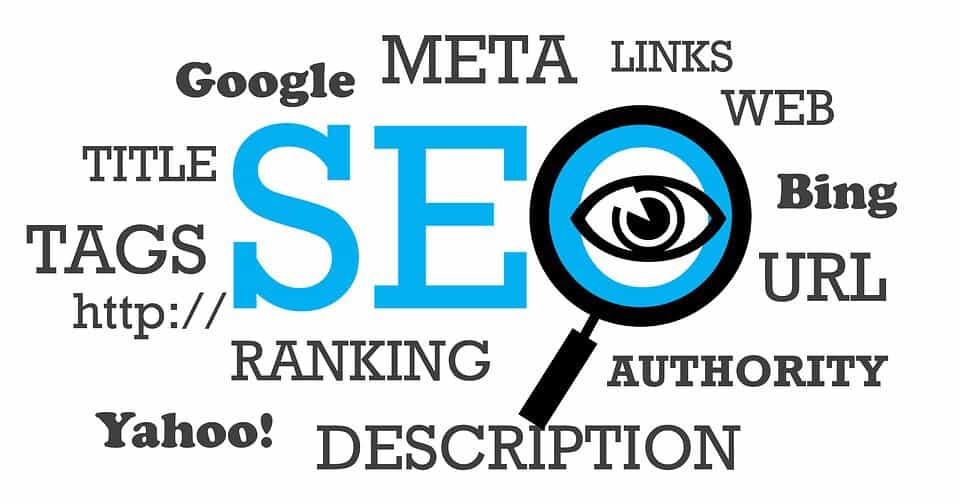Search engine optimization is a necessary part of any digital marketing strategy. Startups face a more particular struggle: as a new business, getting noticed and building brand awareness is a crucial goal. Startup founders are tasked with acquiring an initial customer and nurturing existing customers. Here a few statistics that demonstrate the benefits of SEO for startups:
- 93% of online experiences begin with a search engine
- Nearly half of all consumers will view 3-5 pieces of content from a business before contacting sales representative
- 75% of people conducting a search will not go past the first page
- The majority of people ignore paid ads in search and go straight to the organic results
As a startup founder, you may think SEO isn’t a priority. Perhaps you’re concerned you don’t have a strong enough presence to warrant a website. However, the truth is, you shouldn’t wait to start SEO; with all the benefits this tactic affords, understand that it’s never too soon to start. Here’s why:
SEO Takes Time to Build
Search engine optimization takes a while to grow. Like an infant, you have to nurture and feed it every single day. Results from your efforts are never instant, and there’s no promise on the timeframe. Some websites might take six months to reach the front page of Google, and others could take two years.
The length of time it takes to achieve desirable SEO goals depends on varying factors, such as competition, location, and content. Even if you aren’t confident enough in your product or service, you can still go ahead and get to work on your foundation. For example, start with on-site optimization and begin posting blog content consistently (after all, websites with blogs are nearly 500% more likely to get indexed by Google).
Helps You Think Outside the Box
As you start working on your website SEO (whether you’ve invested in an agency or are taking on the task in-house), you’ll find that it naturally encourages you to think outside the box. What sort of marketing hooks does it take to attract your target market? What keywords are most important? Which version of your homepage has a stronger impact? These are all questions that would be difficult to answer if you waited until you feel “ready” to start.
Build Backlinks
One of Google’s most important ranking factors is linking. Getting links from other websites that point to yours helps Google understand the value and relevance of your site. In the digital world, each link is essentially a virtual “vote.” The more backlinks you have, the more confidence Google has that your website is a valuable resource and can offer a good user experience.
But like SEO, building quality backlinks takes time. Without a website or a blog for your content marketing efforts, other websites have nothing to link to. You also lose out on the opportunity to guest post on other websites. Guest posting helps you reach more established audiences and each guest post in another link back to your site. Ultimately, building backlinks over time helps improve your website authority.
Keep in mind that as you build your SEO, your audience grows, too, and you’ll need the proper web solutions to support that level of scale. This is especially true if you run heavy content on your site, with game and voice. Search for a modern hosting provider that can help your website leverage the ability to grow as your business does.
Data Collection
The second you start building SEO, you’ll be able to start acquiring data. In today’s business landscape, data is more important than ever. After all, when it comes to online marketing, data is like currency. For example, after you begin blogging and acquiring backlinks, you’ll have insight into the type of websites that are pointing to your startup, and gain a better understanding of where your visitors are coming from. You’ll also see which content is performing better than others; this allows you to pivot appropriately if necessary.
Furthermore, once you start building SEO you can conduct audits that offer a bird’s-eye view on your website growth. These audits aren’t just important for your website and sales, but for your core business objectives, too.
See Where You Stand
Competitor research is useful for many reasons. Using competitor analysis tools like Spyfu helps you peek into the SEO strategies and results of similar companies. But without your own SEO, it would be difficult to see where you stand among your competition. For instance, of course, you’ll want to know the conversion rate of your optimized pages. Yet, even if you’re satisfied with your metrics, how does it compare to others in your niche? Starting SEO early makes it easy to identify these comparisons and make new judgment calls about the future of your digital presence.

